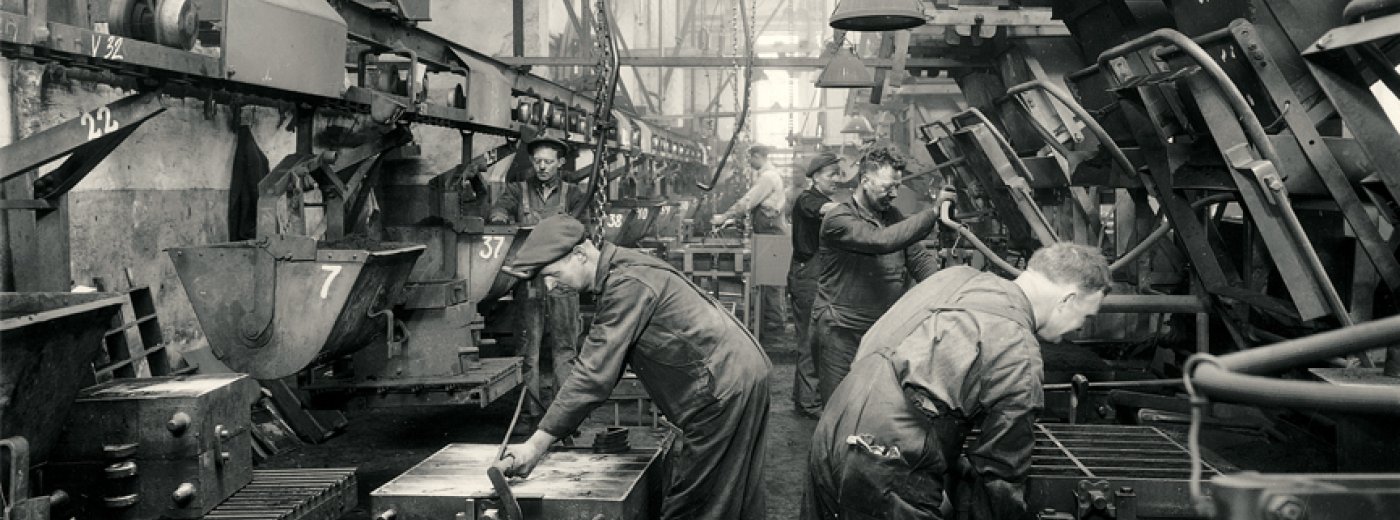During the early 1900’s, Kværner was the most advanced mechanical workshop in Norway and they expanded their activities and gradually changed their focus to new products. In 1916, they sold the wood stove production facility.
It was 26 year-old Herman Anker who bought the foundry, which was renamed Kværner Ovnsstøperi. He wished to continue the legacy of Norwegian cast iron traditions, while at the same time further developing the aesthetics and quality. Anker was an intelligent business man who appreciated the value of marketing and an advanced sales team long before this was common practice. And with that, the foundation for the Jøtul brand was made.
During the 1920’s, international economy experienced a serious decline and Jøtul faced bankruptcy. Their saviour was Johannes Gahr. He shared many of his predecessor’s qualities and steered Jøtul out of the crisis and into a new era of growth. Once again, Jøtul was the largest producer of wood stoves in Norway.
Jøtul continued to grow in the period after the Second World War, despite the demand for wood stoves sinking as new sources of energy like oil, kerosene and electricity developed. During the 1960’s, there were only a few players left in the market, and Jøtul was by far the largest. Jøtul started adapting to the market as early as in the 1950’s and fireplaces burning liquid fuel had already been the company's most important source of income for a long time, during the 1970's.
Following several incidents in the 1970’s, making oil hard to come by, the demand for wood stoves exploded. New possibilities opened up and wood stoves once again became the most important part of Jøtul’s product range.
The Gahr family then sold Jøtul to the major international corporation Norcem in 1977. The consequence was a more export oriented activity including a string of acquisitions of foundries and import companies in the US and Europe. An economic downturn in the second half of the 1980’s made Jøtul re-evaluate their objectives for the company.
During the past decades, Jøtul has once again built an international network and become a global brand with subsidiaries and distribution facilities in most countries and on all continents.
Despite experiencing both highs and lows during the last 170 years, Jøtul has proven itself to be a survivor and we continue to grow and develop as a company. The success can be attributed to courage, desire and the ability to adapt to new needs and markets. This is the reason why Jøtul is still going strong, both as a wood stove foundry and a global market leader.
